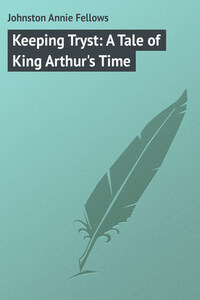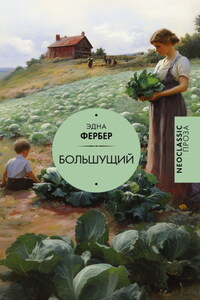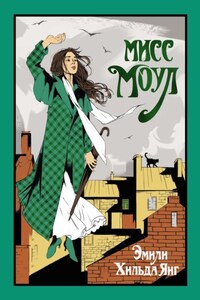CHAPTER I.
MARY TELLS ALL SHE KNOWS
"Joyce," said Jack Ware, stopping beside his sister's seat in the long, Western-bound train, "I wish you'd go back into the observation-car, and make Mary stop talking. She's telling all she knows to a couple of strangers."
"Why don't you do it?" asked Joyce, looking up from her magazine with a teasing smile. "That dignified scowl of yours ought to frighten anything into silence."
"I did try it," confessed Jack. "I frowned and shook my head at her as I passed, but all the good it did was to start her to talking about me. 'That's my brother Jack,' I heard her say, and her voice went through the car like a fine-pointed needle. 'Isn't he big for fourteen? He's been wearing long trousers for nearly a year.' They both turned to look at me, and everybody smiled, and I was so embarrassed that I fell all over myself getting out of sight. And it was a girl she said it to," he continued, wrathfully. "A real pretty girl, about my age. The fellow with her is her brother, I reckon. They look enough alike. He's a cadet from some military school. You can tell by his uniform. They laugh at everything that Mary says, and that makes her go on all the worse. So if you don't want them to know all our family history, past, present, and to come, you'd better go back and shut up that chatterbox. You know what Mary's like when she gets started."
"Yes, I know," sighed Joyce, "but I don't dare move now. Norman has just fallen asleep, and he's been so restless all day that I don't want him to waken until mamma has had her nap." She glanced down at the little six-year-old brother stretched out on the seat beside her with his head in her lap, and then across the aisle at her mother, lying with her white face hidden among the shawls and pillows.
"If I send for Mary to come back here, she'll flop around until she wakes them both. Can't you get her out on to the rear platform for awhile? I should think she would enjoy riding out there on one of those little camp-stools. Slip one of those oranges into your pocket, and whisper to her to follow you out and guess what you have for her."
"Well, I'll try," said Jack, dubiously, "but I'm almost sure she won't budge. It isn't every day she gets an audience like that. It flatters her to have them laugh at everything she says, and as sure as I stop and speak to her she'll say something that I don't want to hear."
"Oh, never mind, then," said Joyce. "They are strangers, and probably we'll never see them again, so it won't make any difference. Sit down here and forget about them. You can have this magazine in a minute, just as soon as I finish reading this half-page."
But Jack did mind. He could not forget the amused glances that the pretty girl had exchanged with her big brother, and after standing irresolutely in the aisle a moment, he strolled back to the observation-car. Slipping into a wicker chair near the door, he sat waiting for Mary to look in his direction, so that he could beckon her to come to him.
Half the passengers had gone to sleep and forgotten that they were being whirled across the great American Desert as fast as the limited express-train could carry them. Some were reading, and some gazing out of the windows at the monotonous wastes of sand. The only ones who really seemed to be enjoying the journey were his small sister and her audience of two. She sat on a footstool in the aisle, just in front of them, a box of candy in her lap, and a look of supreme satisfaction on her face. Two little braids of blond hair, tied with big bows of blue ribbon, bobbed over her shoulders as she talked. Jack was too far away to hear what she said, but his scowl deepened whenever the girl exchanged amused glances with her brother.
"This candy is almost as good as the fudge we used to make at home every Saturday afternoon," said Mary, putting a chocolate-covered marshmallow in her mouth, and gravely running her tongue around her lips. "But we'll never again make any more fudge in that house."
"Why not, dear?" asked the girl, with encouraging interest. This child was the most diverting thing she had found on the long journey.
"Oh, everything has come to an end now. Joyce says you can never go back when you've burned your bridges behind you. It was certainly burning our bridges when we sold the little brown house, for of course we could never go back with strangers living in it. It was almost like a funeral when we started to the train, and looked back for the last time. I cried, because there was the Christmas-tree standing on the porch, with the strings of popcorn and cranberries on it. We put it out for the birds, you know, when we were done with it. When I saw how lonesome it looked, standing out in the snow, and remembered that it was the last Christmas-tree we'd ever have there, and that we didn't have a home any more, why I guess anybody would have cried."
"Why did you sell the little home if you loved it so?" asked the girl. It was not from any desire to pry into a stranger's affairs that she asked, but merely to keep the child talking.














